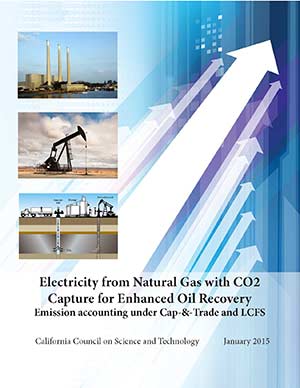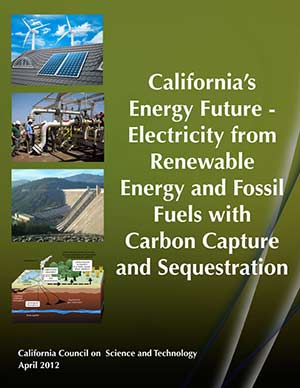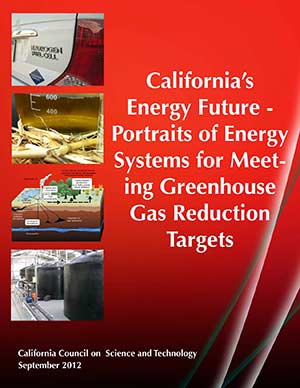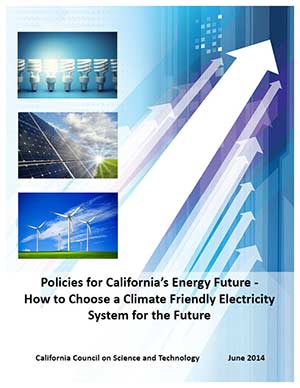Policies for California’s Energy Future – Electricity from Natural Gas with CO2 Capture for Enhanced Oil Recovery
Author(s): Rhodes, James; Clarens, Andres; Eranki, Pragnya; Long, Jane C.S.
Release Date: January 9, 2015 | Last Updated Date: February 15, 2015
Abstract
This report evaluates emission accounting under California’s existing climate policies for energy systems that integrate CO2 capture and storage (“CCS”) with CO2-enhanced oil recovery (“CO2-EOR”). CCS has been identified as potentially important for advancing California’s energy future and climate goals. The California’s Energy Future study showed that California’s 2050 goal of reducing greenhouse gas emissions by 80% below 1990 levels will be very difficult to achieve from a technical perspective alone. Moreover, nearly all technology portfolios identified in the study for achieving the 80% target require CCS, primarily as a way to overcome challenges from irreducible fuel requirements and limited supplies of low-carbon fuels.
The paper addresses regulatory uncertainties concerning Systems that integrate CCS with CO2-EOR (“CCS-EOR”), one of several approaches referred to as carbon capture utilization and storage (“CCUS”), and provides a concrete basis for ongoing policy discussions by evaluating greenhouse gas emissions from a hypothetical CCUS deployment according to a plain reading of the California cap-and-trade (“CA-C&T”) program and the California Low Carbon Fuel Standard.







